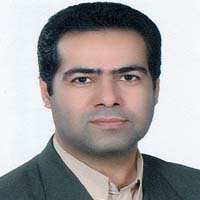Theoretical Basis of Learner-centered Foreign Language Teaching Methods
Author(s):
Abstract:
This study investigates the theoretical principles of the learner centered foreign language teaching methods. It also attempts to find an answer to the question of how the science of foreign languages teaching have shifted from teacher centered classes toward student centered ones. The emphasis on learner centered classes is an issue, which is highly recommended but it has been overlooked in practice. Teaching methods of foreign languages in the 20th century have been mainly influenced by psychology, pedagogy and andragogy. Behavioristic psychology and structural linguistics formed the theoretical foundations of audio-lingualism. According to this approach, learners were to imitate the patterns of teachers in an immediate and automatic manner. In audio-visual teaching of unified structures, giving autonomy to the learner approximates the learner to produce new sentences during a learner-centered learning. The Chomskyan generative grammar and his notions of competence and performance have influenced (though indirectly) the teaching methods of foreign languages. In communicative approach, the learner is actively engaged in producing various speech acts and, in the process of instruction, he/she collaborates actively with the teacher. In community language learning, much attention has been paid to the principles of andragogy, in which the teacher is considered to be an adult consultant. In the course of the evolution of the roles that learners (adults as well as children) have played during the last century, attempts are made to focus on the psychological changes from behaviorism to cognitive psychology. This study further focuses on the changes of attitudes from traditional pedagogy to modern pedagogy and also to the emergence of andragogy.
Language:
Persian
Published:
Language Related Research, Volume:1 Issue: 2, 2010
Page:
135
https://magiran.com/p789723
سامانه نویسندگان
مقالات دیگری از این نویسنده (گان)
-
Etude contrastive des schémas-images des proverbes français et persans
Tahereh Mohammadpour, Mahmoudreza Gashmardi*
Recherches en Langue et Littérature Françaises, Fall and Winter 2025 -
The effect of using mind mapping in virtual classes on the meaningful learning of bachelor studentsʼarabic vocabularies
Sakine Zarenejad, Isa Motaghizade, Kobra Roshanfekr, Mahmoodreza Gashmardi
Iranian Association of Arabic Language and Literature,


